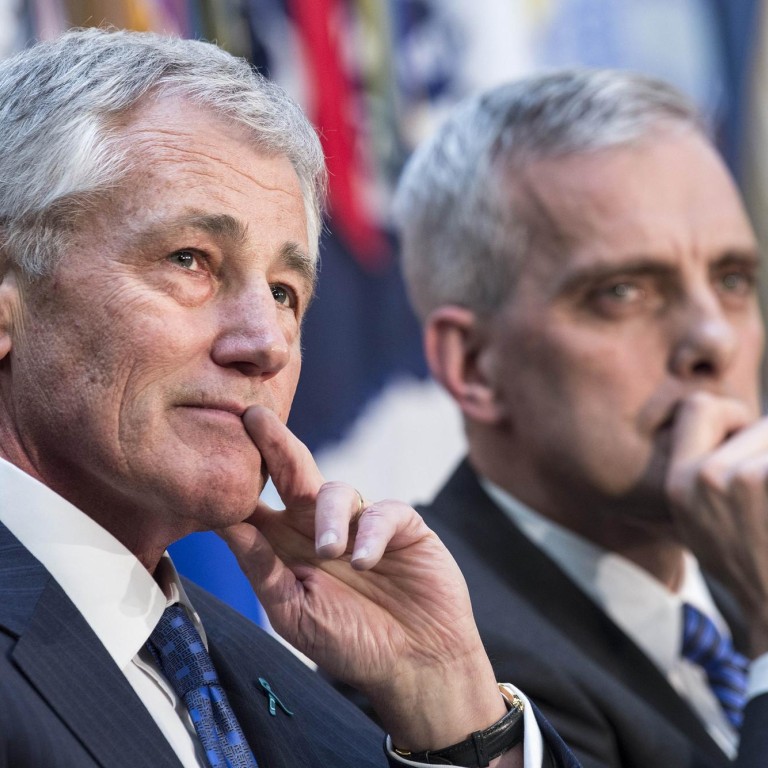
US Department of Defence to triple cyber staff in bid to thwart internet attacks
During speech at NSA headquaters Defence Secretary Chuck Hagel vows to enhance 'our ability to deter aggression in cyberspace' by recruiting more than 4,000 additional staff
The Pentagon is adding significantly to the ranks of its cyberwarfare unit to deter and defend against foreign attacks on crucial US networks, Defence Secretary Chuck Hagel said.
In his first major speech on cyber policy, Hagel sought to project strength but also to tame perceptions of the United States as an aggressor in computer warfare, stressing that the government "does not seek to militarise cyberspace".
His remarks, delivered at the retirement ceremony of General Keith Alexander, the outgoing director of the National Security Agency and Cyber Command, come in advance of Hagel's trip to China this week, his first as defence secretary. The issues of cyberwarfare and cyber-espionage have been persistent sources of tensions between Washington and Beijing.
Hagel said that the fighting force at US Cyber Command will number more than 6,000 people by 2016, making it one of the largest such forces in the world.
It will help expand the president's options for responding to a crisis with "full-spectrum cyber capabilities", Hagel said, a reference to operations that can include destroying or sabotaging an adversary's computer systems and that can complement other military operations.
But, Hagel said, the military's first purpose was "to prevent and de-escalate conflict". The Pentagon would maintain "an approach of restraint to any cyber operations outside of US government networks".
Although some US adversaries, notably China and Russia, which also have formidable cyber capabilities, may view his remarks with scepticism, Hagel said the Pentagon is making an effort to be "open and transparent" about its cyberforces and doctrine. The hope, senior officials said, is that transparency will lead to greater stability in cyberspace.
To underscore the point, Hagel's speech was broadcast live from NSA headquarters at Fort Meade, the first such broadcast from the agency.
"The most important point is we want people to understand the reality of what our policies are,'' said one senior defence official, speaking anonymously.
"We only engage in cyber operations when it is something important, either providing options to the president, defending the department networks or, most importantly, ensuring the security of the United States and critical infrastructure."
The official added: "We want the Chinese to understand what it is we're doing in building a cyberforce at Cyber Command, understand how we operate, understand the policies we use, like the policy of restraint."
Analysts said that China and Russia were unlikely to be convinced by Hagel's remarks.
Revelations about the NSA's activities, based on documents provided by former contractor Edward Snowden, make US assertions that it is focused on protecting its national security - and not actively infiltrating others' networks - that much harder to accept, they said.

